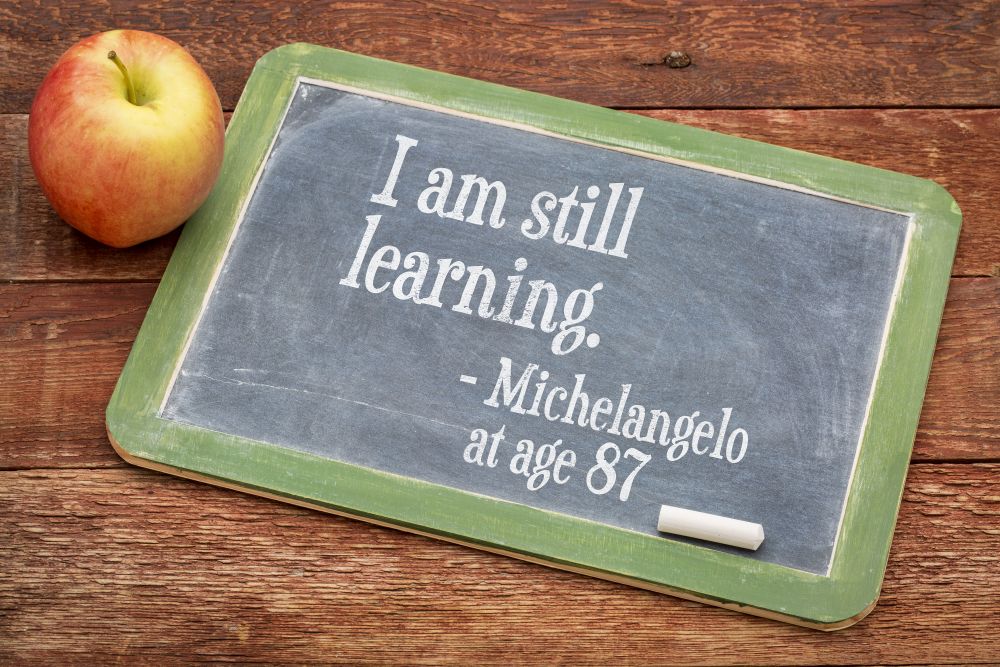
Ever feel like you have to do a million things at once? Research performed is showing that humans can only handle two tasks at a time due to the way that their brain is divided. This doesn’t mean you can’t chew gum and type at the same time – it means that you can’t do more than one task that involves decision making at a time.
Human multitasking is the performance by an individual of appearing to handle more than one task at the same time. The term is derived from computer multitasking. An example of multitasking is listening to a radio interview while typing an email. Since the 1990s, experimental psychologists have started experiments on the nature and limits of human multitasking. It has been shown multitasking is not as workable as concentrated times. In general, these studies have disclosed that people show severe interference when even very simple tasks are performed at the same time, if both tasks require selecting and producing action (e.g., (Gladstones, Regan & Lee 1989) (Pashler 1994)). Psychiatrist Richard Hallowell has gone so far as to describe multitasking as a “mythical activity in which people believe they can perform two or more tasks simultaneously."
Well, the brain is divided into two hemispheres, and the frontal lobe helps us manage tasks. Handling more than two tasks simultaneously is like having an air traffic controller trying to handle one too many planes in the sky – it overwhelms the system and increases the risk of error. Using test subjects, the researchers used functional MRIs while the individuals were doing complex tasks using letter sequencing. First, they were asked to alternate one task with another. Second, they were asked to postpone a task while performing the other. When postponing a task, both lobes of the brain lit up. Then, the scientists added a third task to the mix, and the error rate increased dramatically, showcasing that three tasks is really too much for the brain to handle.
Motivated Multitasking: How the Brain Keeps Tabs on Two Tasks at Once
 New research shows that rather than being totally devoted to one goal at a time, the human brain can distribute two goals to different hemispheres to keep them both in mind--if it perceives a worthy reward for doing so. The human brain is considered to be pretty quick, but it lacks many of qualities of a super-efficient computer. For instance, we have trouble switching between tasks and cannot seem to actually do more than one thing at a time. So despite the increasing options—and demands—to multitask, our brains seem to have trouble keeping tabs on many activities at once.
New research shows that rather than being totally devoted to one goal at a time, the human brain can distribute two goals to different hemispheres to keep them both in mind--if it perceives a worthy reward for doing so. The human brain is considered to be pretty quick, but it lacks many of qualities of a super-efficient computer. For instance, we have trouble switching between tasks and cannot seem to actually do more than one thing at a time. So despite the increasing options—and demands—to multitask, our brains seem to have trouble keeping tabs on many activities at once.
For the study, 32 right-handed subjects were asked to match letters while their brain activity was recorded with functional magnetic resonance imaging (fMRI). Subjects were motivated by a monetary reward they would receive based on how many letters they matched without error. During this baseline test, both hemispheres of the brain's medial frontal cortex (which is involved in motivation) appeared active. However, when the researchers introduced a second task, where the subjects had to match like uppercase letters in addition to matching like lowercase letters with separately accruing reward tallies, Koechlin and his coauthor Sylvain Charron (of the same institution) found that the subjects' brains divided the two reward-based goals between the two sides of the region. The results were published online April 15 in Science. 
The area of the brain that was highly active in the observed multitasking behavior, the frontopolar cortex (which organizes pending goals while the brain completes another task), is "especially well developed" in humans, Koechlin says. It helps organize tasks and the order in which their components should be completed (as highlighted by patients who have damaged this part of the brain and are especially poor at multitasking, he notes). This area's lesser development in other primate species leads Koechlin to think that the ability to hold more than one goal in mind at once might be unique to our species.
The new work does not, however, show that the brain can actually execute two distinct tasks, such as letter matching, at precisely the same time, Paul Dux a psychology lecturer at the University of Queensland in St. Lucia, Australia, noted in an email to ScientificAmerican.com. The data reveal that though separate goals might be running concurrently in the brain, "there are still large dual-task costs" when people have to switch between two tasks making for "non-efficient multitasking," cautioned Dux, who was not involved in the new research but has also studied attention in the brain. Some commonplace activities, such as driving and talking on a cell phone frequently go hand-in-hand, but the brain is likely switching its main focus quickly between the two activities, perhaps a reason the pairing has been so dangerous.
Because the brain cannot fully focus when multitasking, people take longer to complete tasks and are predisposed to error. When people attempt to complete many tasks at one time, “or [alternate] rapidly between them, errors go way up and it takes far longer—often double the time or more—to get the jobs done than if they were done sequentially,” states Meyer. This is largely because “the brain is compelled to restart and refocus”. A study by Meyer and David Kieras found that in the interim between each exchange, the brain makes no progress whatsoever. Therefore, multitasking people not only perform each task less suitably, but lose time in the process.
When presented with much information, the brain is forced to pause and refocus continuously as one switches between tasks. Realistically, this is “a rapid toggling among tasks rather than simultaneous processing.” According to a study done by Jordan Grafman, chief of the cognitive neuroscience section at the National Institute of Neurological Disorders and Stroke, “the most anterior part [of the brain] allows [a person] to leave something when it’s incomplete and return to the same place and continue from there,” while Broadman’s Area 10, a part of the brain’s frontal lobes, is important for establishing and attaining long term goals. Focusing on multiple dissimilar tasks at once forces the brain to process all activity in its anterior. Though the brain is complex and can perform a myriad of tasks, it cannot multitask well.
Another study by René Marois, a psychologist of Vanderbilt University, discovered that the brain exhibits a “response selection bottleneck” when asked to perform several tasks at once. The brain must then decide which activity is most important, thereby taking more time. Psychologist David Meyer of the University of Michigan claims that, instead of a “bottleneck,” the brain experiences “adaptive executive control” which places priorities on each activity. These viewpoints differ in that, while bottlenecking attempts to force many thoughts through the brain at once, adaptive executive control prioritizes tasks to maintain resemblance of order. The brain better understands this order and, as psychologists such as Dr. Meyer believe, can therefore be trained to multitask. Because the brain is an expanse of yet uncharted territory, psychologists do not understand how the brain truly processes input and reacts to overstimulation.
Adapted from an article in
Scientific American - By Katherine Harmon















